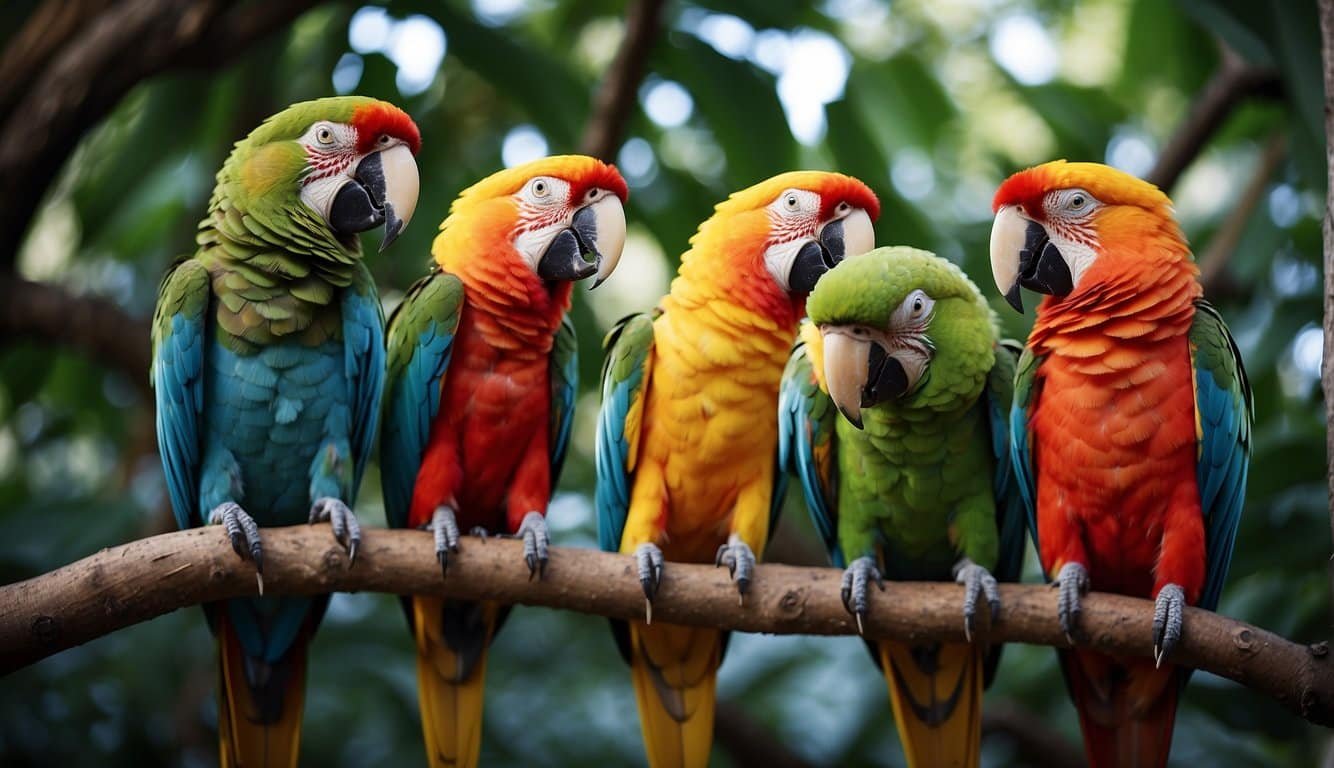Understanding Bird Intelligence

Bird intelligence is remarkably complex, encompassing an array of cognitive abilities that go well beyond instinctive behaviors. From problem-solving to the use of tools, birds exhibit a level of cognition that rivals that of mammals, including some primates.
Defining Avian Intelligence
Avian intelligence often reveals itself through behaviors that require thinking, learning, and the ability to adapt. Researchers evaluate bird intelligence by observing problem-solving skills and the capacity for memory and learning. Some species, like crows and parrots, have displayed astonishing ingenuity, such as using tools in the wild to obtain food.
Bird Brain Anatomy and Cognition
The anatomy of a bird’s brain is different from that of mammals, yet it supports complex cognitive functions. The pallium, a region of the brain in birds, is associated with higher-order cognition, including communication and intelligent behavior, refuting the outdated notion of “bird brains” being synonymous with limited intelligence.
Assessing Intelligence Through Tests
To assess bird intelligence, scientists conduct various tests that measure cognitive abilities. For instance, the ability of birds to understand numerical concepts is a strong indicator of intelligence. Birds are also tested on their capacity for learning commands and navigating complex mazes, showcasing their memory and cognition skills.
Corvidae: The Brainy Birds
Members of the Corvidae family, which include crows, ravens, and magpies, are renowned for their exceptional intelligence. They exhibit behaviors such as tool use, problem-solving, and social complexity that rival some primates.
Insight into Corvid Behavior
Corvids demonstrate remarkable problem-solving skills, often comparable to those of young children. For example, the New Caledonian crow has been observed fashioning tools out of twigs and leaves to extract insects from tree bark. This capacity for innovation showcases their natural intelligence. Moreover, these birds exhibit social intelligence, engaging in sophisticated interactions within their communities, including the use of sophisticated signals amongst ravens.
Specific Studies on Corvid Intelligence
Various studies have thrown light on the intelligence of corvids. For instance, Eurasian magpies have been shown to recognize themselves in a mirror, a trait once thought to be exclusive to humans and a few other animals. Rooks reveal their cleverness by dropping stones into a water-filled tube to raise the water level and reach a floating reward. Western scrub jays are known to cache food and later recall the locations, displaying an impressive memory. Such intelligent behaviors have positioned corvids among the smartest bird species.
From the lexicon and mimicry of jays to the tool-using dexterity of crows, corvids continue to captivate scientists and bird enthusiasts alike with their manifest intelligence, challenging the way we think about the cognitive capabilities of animals.
Parrot Family: Masters of Mimicry

Members of the parrot family, including the famed African grey parrot, are renowned for their exceptional mimicry skills. They are not only able to mimic human speech but can also reproduce a wide variety of sounds, which is a testament to their intricate communication abilities and high cognitive talents.
Parrot Communication Skills
Parrots have a unique knack for mimicking human speech, a skill that sets them apart in the avian world. This ability to replicate sounds so precisely comes from their highly developed auditory cortex and specialized voice box. African greys, in particular, are known for their talent in vocal imitation. Irene Pepperberg’s work with an African grey named Alex has dramatically shown these parrots’ capacity to understand and articulate words, further demonstrating the sophisticated communication skills within this bird family.
Cognitive Talents of Parrots
Beyond mimicry, the intelligence of parrots includes problem-solving and memory, which are crucial indicators of their cognitive complexity. Research by scientists such as Kevin McGowan from the Cornell Lab of Ornithology has put parrots, including macaws and cockatoos, at the forefront of avian intelligence. Their ability to solve puzzles and use tools, like using sticks to reach food, further debunk the old myth of parrots as mere mimics. Parrots exhibit a degree of self-awareness sometimes seen through their interactions with mirrors. The cognitive talents of parrots are not just for survival; they also encompass leisure activities such as playing musical instruments, showcasing their rich and multifaceted intelligence.

